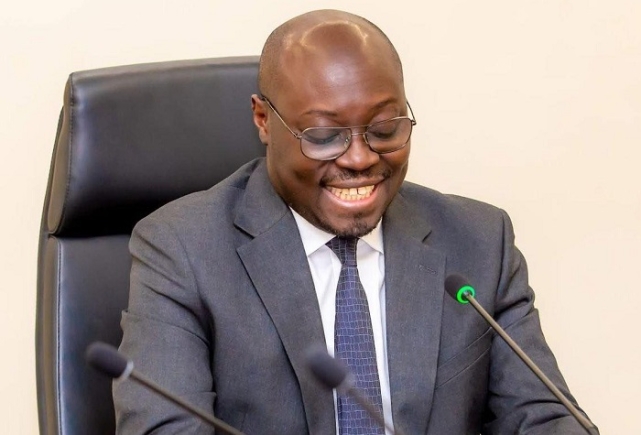The Minister of Finance and Member of Parliament (MP) for Ajumako-Enyan-Esiam, Dr Cassiel Ato Forson, has laid before Parliament a bill seeking to amend the Energy Sector Levies Act, 2025.
The bill, titled the Energy Sector Levies (Amendment) Bill, 2025, proposes an upward adjustment in the Energy Sector Shortfall and Debt Repayment Levy to raise additional revenue to support the payment of energy sector arrears, reduce legacy debt, and ensure stable power supply across the country.
The bill was formally read for the first time in the House and has since been referred to the Finance Committee for consideration and report. It was laid under a certificate of urgency.
Explaining the rationale behind the bill, Dr Forson told Parliament that the energy sector currently posed the greatest economic and fiscal threat to the country, warning that failure to address its mounting challenges could result in a full-blown crisis.
“The total energy sector debt as at the end of March 2025 stands at $3.1 billion. This amount includes debts owed to Independent Power Producers (IPPs), State-Owned Enterprises (SOEs), fuel suppliers, and other stakeholders,” he said.
Energy situation
Dr Forson emphasised that the nation’s inability to honour its financial obligations to key players such as ENI and Karpowership resulted in the complete drawdown of two critical guarantees in 2024: a $512 million IDA guarantee from the World Bank and a $120 million guarantee from the Ghana National Petroleum Corporation (GNPC).
The government, he said, would now need $632 million to restore those guarantees.
He further stated that a minimum of $3.7 billion is required to clean up the energy sector’s overall indebtedness and reset the sector on a more stable path.
Highlighting the shift in the country’s electricity generation mix, Dr Forson said the country now heavily relies on thermal power to supplement hydroelectric sources.
However, he revealed that the cost of liquid fuel for thermal generation was not currently factored into electricity tariffs, resulting in revenue shortfalls.
He further stated that including fuel costs in the current electricity pricing structure could lead to a 50 per cent hike in tariffs, which would significantly burden households and businesses.
No extra cost
Therefore, the proposed levy increase, he explained was a more balanced alternative that would avoid passing costs directly onto consumers.
“This levy will serve as a dedicated source of funding to the power sector, and the proceeds will be earmarked for the procurement of essential fuel for power generation,” he said.
Dr Forson assured the House that the impact of the new levy on petroleum prices would be neutralised by the strong performance of the Ghana cedi, ensuring that ensuring that consumers would not pay extra for petrol or diesel beginning today.
"Mr Speaker, I repeat, the impact will be absorbed by the gains made from the strong performance of the Ghana cedi, and this will mean that consumers will not have to pay extra for the price of petrol and diesel beginning today. Our simulations suggest that there will be no increase in the ex-pump price of petrol and diesel in the next window, beginning today, if the levy is imposed,” he stated categorically.

